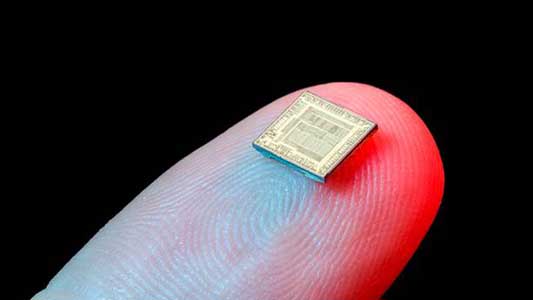The RFID Chips Market has witnessed significant growth in recent years, with the global industry valued at US$ 8.1 billion in 2022. Projections indicate a robust advancement, with an estimated Compound Annual Growth Rate (CAGR) of 12.3% from 2023 to 2031. By the end of 2031, the market is anticipated to reach a staggering US$ 23.2 billion. This article explores the fundamentals of RFID technology, its applications, benefits, and addresses associated concerns.
How RFID Works
At the core of RFID technology are RFID tags, which consist of a microchip and an antenna. These tags come in various forms, such as passive, active, and semi-passive, each designed for specific applications.
1. Passive RFID Tags: These tags do not have a power source of their own and rely on the energy emitted by the RFID reader to transmit data. They are cost-effective and are commonly used in asset tracking, inventory management, and access control systems.
2. Active RFID Tags: Unlike passive tags, active RFID tags have their power source, usually a battery. This enables them to transmit signals over longer distances and store more data. Active tags are often used in tracking high-value assets, monitoring vehicle fleets, and managing large-scale logistics operations.
3. Semi-Passive RFID Tags: These tags have a battery to power the chip’s circuitry but rely on the RFID reader’s energy for communication. They offer a balance between the range and functionality of passive and active tags.
Applications of RFID Technology
RFID technology finds applications across various sectors:
1. Supply Chain Management: RFID facilitates real-time tracking of goods throughout the supply chain, from manufacturing to distribution to retail shelves. This improves inventory accuracy, reduces stockouts, and enhances overall operational efficiency.
2. Retail: In retail, RFID enables retailers to automate inventory management, streamline checkout processes, and prevent theft. By accurately tracking stock levels, retailers can optimize replenishment strategies and improve customer satisfaction.
3. Healthcare: RFID is utilized in healthcare for patient identification, medication management, and asset tracking. RFID-enabled wristbands ensure accurate patient identification and help prevent medication errors. Additionally, RFID tags attached to medical equipment and supplies enable efficient asset tracking and management.
4. Transportation and Logistics: RFID plays a crucial role in tracking shipments, managing inventory in warehouses, and monitoring the movement of goods in transit. It enhances visibility throughout the logistics chain, reducing errors and delays.
5. Smart Manufacturing: In manufacturing, RFID is employed for asset tracking, product authentication, and quality control. By tagging components and products, manufacturers can optimize production processes, trace defective items, and ensure compliance with industry standards.
Benefits of RFID Technology
The widespread adoption of RFID technology offers several benefits:
1. Improved Efficiency: RFID automates data capture processes, eliminating the need for manual scanning and entry. This saves time, reduces labor costs, and minimizes errors associated with traditional barcode systems.
2. Enhanced Visibility: RFID provides real-time visibility into the location and status of tagged items throughout the supply chain. This enables better decision-making, faster response to issues, and improved overall operational visibility.
3. Inventory Accuracy: By accurately tracking inventory levels in real-time, RFID helps businesses minimize stockouts, reduce excess inventory, and optimize replenishment cycles. This leads to improved inventory management and increased sales revenue.
4. Enhanced Security: RFID enables better asset security and loss prevention by tracking the movement of high-value items and triggering alerts for unauthorized access or removal.
5. Streamlined Compliance: In regulated industries such as healthcare and aerospace, RFID helps organizations maintain compliance with industry standards and regulatory requirements by providing traceability and documentation of processes.
Concerns Surrounding RFID Technology
While RFID technology offers numerous benefits, its widespread adoption has raised some concerns:
1. Privacy Issues: RFID tags can store sensitive information, raising concerns about privacy and data security. Unauthorized access to this information could lead to identity theft or unauthorized tracking of individuals.
2. Interoperability: Different RFID systems may use different frequencies and protocols, leading to interoperability issues when integrating multiple systems or suppliers into a single supply chain.
3. Cost: The initial investment required for implementing RFID systems, including tags, readers, and infrastructure, can be significant, particularly for small and medium-sized businesses.
4. Reliability: RFID systems may encounter reliability issues in environments with electromagnetic interference or when tags are damaged or improperly attached to items.
5. Ethical Considerations: The widespread use of RFID technology raises ethical questions regarding surveillance, data ownership, and the potential for misuse of RFID data.
These insights are based on a report on RFID Chips Market by Transparency Market Research












